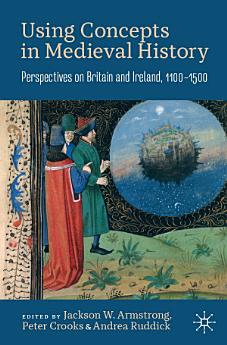Using Concepts in Medieval History: Perspectives on Britain and Ireland, 1100–1500
Jackson W. Armstrong · Peter Crooks · Andrea Ruddick
Jan 2022 · Springer Nature
Ebook
201
Pages
reportRatings and reviews aren’t verified Learn More
About this ebook
This book is the first of its kind to engage explicitly with the practice of conceptual history as it relates to the study of the Middle Ages, exploring the pay-offs and pitfalls of using concepts in medieval history. Concepts are indispensable to historians as a means of understanding past societies, but those concepts conjured in an effort to bring order to the infinite complexity of the past have a bad habit of taking on a life of their own and inordinately influencing historical interpretation. The most famous example is ‘feudalism’, whose fate as a concept is reviewed here by E.A.R. Brown nearly fifty years after her seminal article on the topic. The volume’s contributors offer a series of case studies of other concepts – 'colony', 'crisis', 'frontier', 'identity', 'magic', 'networks' and 'politics' – that have been influential, particularly among historians of Britain and Ireland in the later Middle Ages. The book explores the creative friction between historical ideas and analytical categories, and the potential for fresh and meaningful understandings to emerge from their dialogue.
About the author
Jackson W. Armstrong is Senior Lecturer in History at the University of Aberdeen, UK.
Peter Crooks is Senior Lecturer in Medieval History at Trinity College Dublin, the University of Dublin, Ireland.
Andrea Ruddick is a History teacher at St Paul’s School, London, UK. She previously worked as a lecturer and research fellow at the University of Cambridge and the University of Oxford.
Rate this ebook
Tell us what you think.
Reading information
Smartphones and tablets
Install the Google Play Books app for Android and iPad/iPhone. It syncs automatically with your account and allows you to read online or offline wherever you are.
Laptops and computers
You can listen to audiobooks purchased on Google Play using your computer's web browser.
eReaders and other devices
To read on e-ink devices like Kobo eReaders, you'll need to download a file and transfer it to your device. Follow the detailed Help Center instructions to transfer the files to supported eReaders.




